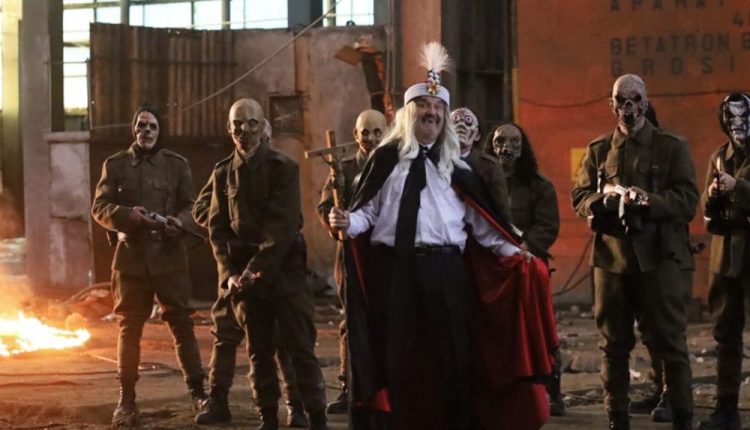Dracula (2025) Review — Radu Jude’s Bold, Bizarre, and Over-the-Top Vampire Satire
The legendary Count Dracula has been reimagined countless times in film, television, and literature — but Romanian auteur Radu Jude has taken the vampire mythos somewhere entirely unexpected. Premiering in competition at the Locarno Film Festival, Dracula (2025) is a sprawling, experimental, and wildly provocative take on the bloodsucker’s tale, blending political satire, sexual comedy, and AI-generated visuals into a 170-minute cinematic fever dream.
A Vampire Tale Like No Other
While Dracula is famously the creation of Irish author Bram Stoker, the character’s origins are deeply tied to Romania — inspired by the fearsome historical figure Vlad the Impaler, whose brutal methods were even more horrifying than the vampire legend itself.

Radu Jude, known for award-winning films like Bad Luck Banging or Loony Porn and Do Not Expect Too Much From the End of the World, tackles the myth with his signature mix of dark humor, political commentary, and genre subversion. But instead of delivering a straightforward gothic horror, he offers a 14-chapter anthology that constantly shifts tone, style, and subject matter.
The Film’s Wild Structure
Narrated by a sardonic fictional director (Adonis Tanta) who stands in as Jude’s alter ego, the movie jumps between wildly different vignettes — from period dramas to workplace zombie comedies to AI-assisted surrealism. Each chapter explores some form of “vampirism,” whether literal bloodsucking, corporate exploitation, or sexual obsession.
Highlights (and shocks) include:
- AI-rendered vampire introductions shouting crude catchphrases.
- A satirical fable about a woman who discovers magical phallic-shaped crops in her cornfield.
- A workplace uprising where video game developers battle a zombie boss.
- X-rated musical numbers in an underground Dracula-themed dinner theater.
Themes of Exploitation and Excess
Beneath the outrageous comedy and sexual absurdity, Jude is using Dracula as a metaphor for capitalist greed, political corruption, and cultural commodification.
In one chapter, tourists consume a cheap, hypersexualized version of the vampire legend, while in another, a failing actor in a Dracula costume flees angry customers — a clear nod to how once-powerful icons can be reduced to disposable entertainment.
The visual style is intentionally rough, with digital video, social media aesthetics, and even AI-generated imagery that reflect today’s flood of low-quality, mass-produced content.
The Verdict — Bold but Divisive
Dracula (2025) is messy, chaotic, and unapologetically vulgar. At nearly three hours long, it will test the patience of casual viewers. But for fans of Radu Jude’s confrontational, politically-charged filmmaking, it’s a daring and uncompromising vision — one that uses a pop culture icon to critique the systems draining the lifeblood from society.
It’s unlikely to appeal to mainstream vampire fans, but for those seeking a festival-ready experimental satire, it’s one of the year’s most provocative films.
For more movie reviews, film festival coverage, and deep-dive analyses, visit investrecords.com — your trusted destination for entertainment news, pop culture insights, and cinematic breakdowns.



Comments are closed.